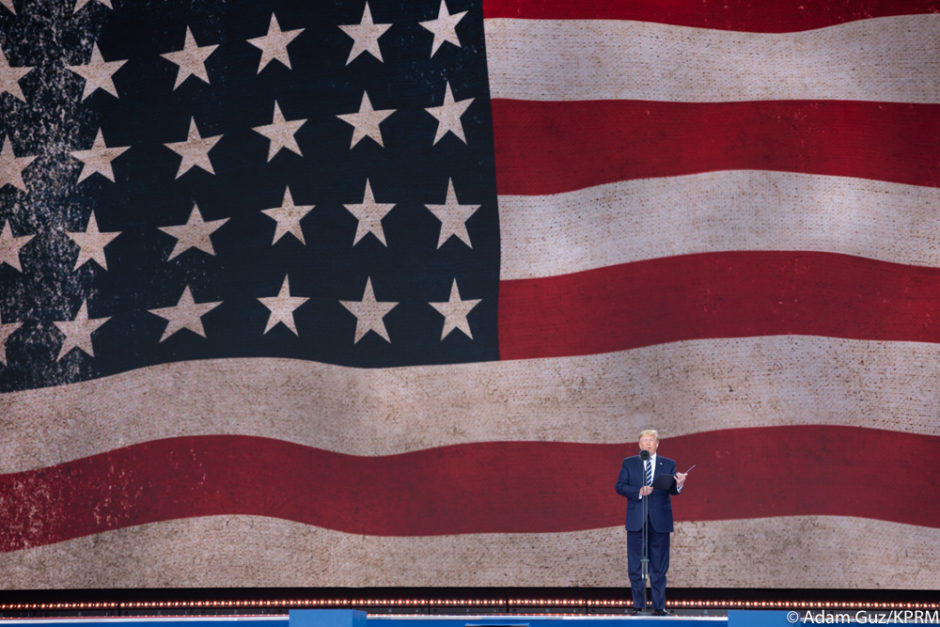Donald Trump’s bark seems worse than his bite.
Having accused Iran of being behind a recent air attack that heavily damaged Saudi Arabia’s petroleum industry, the U.S. president threatened military retaliation. He warned that the United States was “locked and loaded” to respond to the devastating September 14 drone and cruise missile assault on the Abqaiq processing facility and the Khurais oil field.
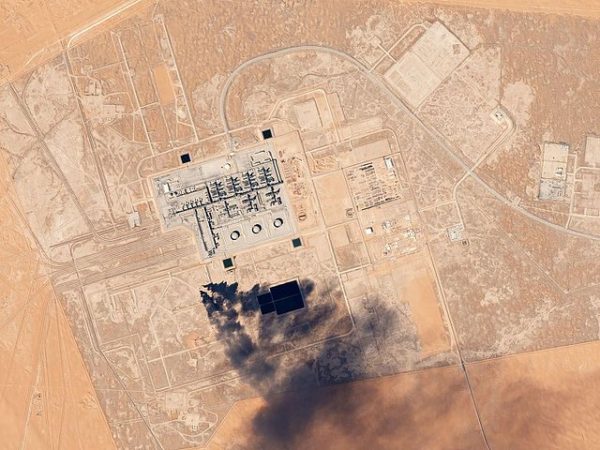
Amid the acrimony, the Houthis — a Yemenite rebel group supported by Iran and enmeshed in a war with Saudi Arabia in Yemen — claimed responsibility.
Despite his bluster, Trump pulled back from the brink. Having fired his hawkish national security advisor, John Bolton, who advocated a hard approach toward the Iranian regime, he admitted he would “like to avoid” an armed clash with Iran. In conformity with this thinking, he dispatched a small number of troops and anti-missile batteries to Saudi Arabia and its neighbor, the United Arab Emirates. And he announced a new round of sanctions against Iran.
In addition, Trump hinted he would order yet more cyber attacks on Iran and press for a diplomatic front against Iran at this week’s meeting of the United Nations General Assembly.
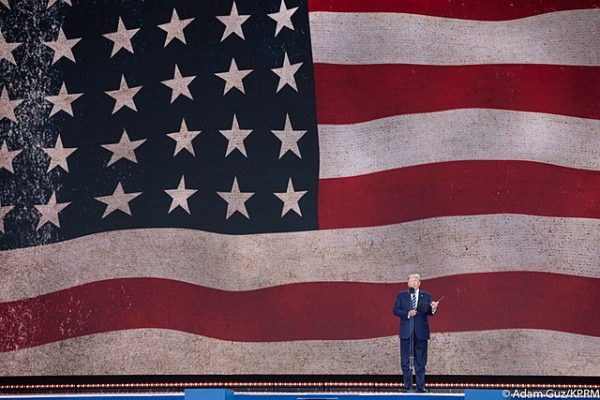
Trump’s decision to exercise restraint was in keeping with his reluctance to become embroiled in a Middle East war. In recent months, Trump, an opponent of the U.S. invasion of Iraq in 2003, has pulled detachments of U.S. troops out of Syria and Afghanistan.
In accordance with this reasoning, Trump cancelled a limited military strike on Iran this past June after saying the United States was “cocked and loaded” to avenge Iran’s downing of a U.S. surveillance drone in the Strait of Hormuz — the waterway through which much of Middle Eastern oil passes to overseas buyers.
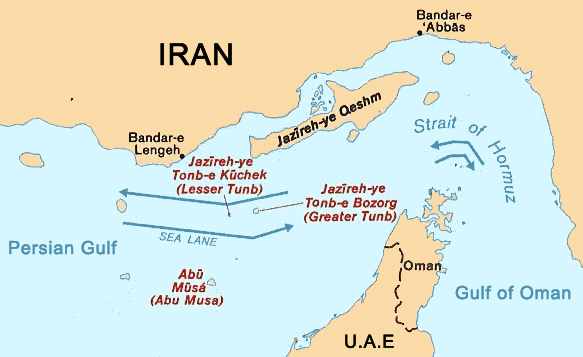
Prior to this incident, which further inflamed tensions in the Middle East, the United States accused Iran of attacking six oil tankers in the Persian Gulf.
Even as Trump drew back from engaging Iran militarily, he could not resist the temptation to flaunt American power. Boasting he could order reprisals “in one minute,” he correctly described his restraint as a sign of strength.
Trump’s heated rhetoric was echoed by U.S. Secretary of State Mike Pompeo. “This was an unprecedented (Iranian) attack on the world’s energy supply,” he declared. “An act of war.”
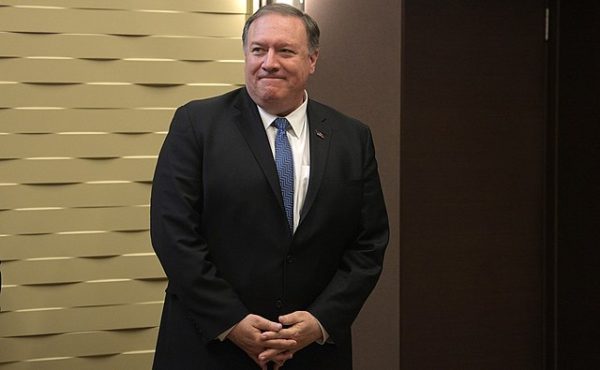
Iran may well have orchestrated the attack on Saudi Arabia to demonstrate its anger over U.S. attempts to block its oil exports, the lifeblood of its economy. The attack rattled markets, temporarily cut Saudi oil processing by one-half, and raised the level of animosity between Iran and the United States to new and dangerous heights.
Iran, which uses regional surrogates to do its dirty work, denied involvement.
With the rhetoric from both sides flying thick and fast, Iranian Foreign Minister Mohammed Javad Zarif accused the United States of escalating the “economic war” on his country.

Trump withdrew from the 2015 Iran nuclear agreement last year, branding it execrable, and imposed still tougher sanctions on Iran as part of his campaign to exert “maximum pressure” on the Iranian regime. Trump’s withdrawal was opposed by the other signatories: Britain, France, Russia, China and Germany.
Trump’s pullout, backed by conservative Arab countries and Israel, was designed to persuade Iran to agree to a drastic overhaul of the nuclear accord. The new terms would require Iran to scrap rather than freeze its nuclear program, to mothball its ballistic missiles batteries, and to drop its support for organizations such as Hezbollah and Hamas, which are deemed terrorist groups by the Trump administration.
“Having upended the nuclear agreement in pursuit of a bigger, better bargain with Iran — whose leaders are clearly disinclined to sit back and accept the U.S. economic onslaught quietly — Trump has ignited the forces of chaos and conflict that the deal was meant to contain,” writes Suzanne Maloney of the Brookings Institute in a cogent commentary.
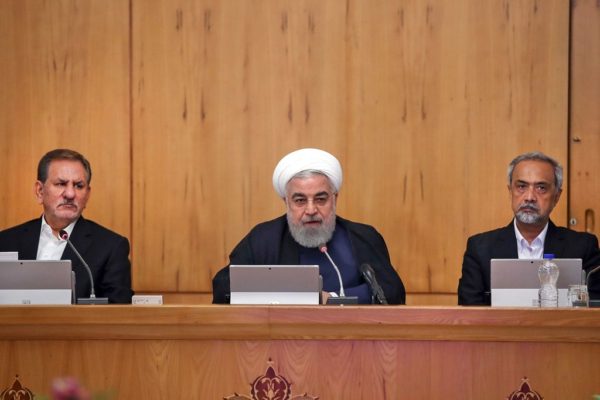
In his quest to revamp the nuclear accord to his specifications, Trump has called for direct negotiations with Iran. Iranian President Hassan Rouhani has categorically rejected his offer, saying the Trump administration must return to the original nuclear agreement and repeal its sanctions before such bilateral talks are possible.
With tensions still flaring, Zarif has warned the United States that a military strike would ignite an “all-out war” in the region.”I’m making a very serious statement that we don’t want war,” he said. “We don’t want to engage in a military confrontation. But we won’t blink to defend our territory.”
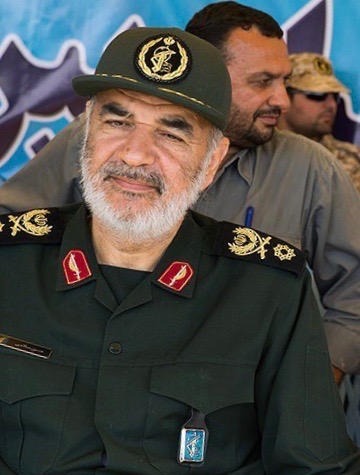
Upping the ante, the commander of the Islamic Revolutionary Guards Corps, General Hossein Salami, warned that Iran will retaliate should it be attacked. As he put it, “Be careful, a limited aggression will not remain limited. We will pursue any aggressor, and we will continue until the full destruction of any aggressor.”
Iran’s threats may or may not fall under the broad category of psychological warfare, but it’s evident that neither the United States nor Saudi Arabia seek a fullscale war with Iran.
Since 2017, Trump has twice ordered air strikes on Syrian military facilities, but Trump knows that Syria, having been greatly weakened by its ongoing civil war, is a paper tiger and poses no real threat to American interests in the Middle East.
Iran, however, is a much bigger and stronger adversary than Syria, and could harm U.S. assets in the region (Israel) and beyond. Being pragmatic and wary of foreign entanglements, Trump will think twice before embarking on a military adventure with Iran.
For the time being, then, Trump will resort to sanctions, diplomacy and scare tactics to keep Iran — his foremost enemy in the Middle East — off balance and in check.
